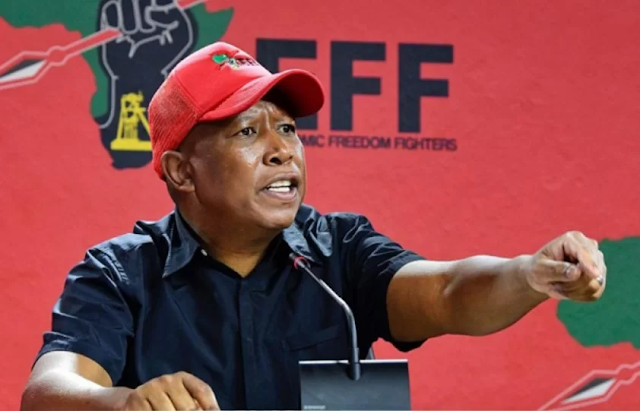 |
| Photo | @EFFSouthAfrica /Twitter |
EFF Leader Julius Malema expressed his frustration with the magistrate overseeing his firearm discharge case in court on Wednesday. Malema criticized the magistrate for allegedly being late and suggested that she should not consider herself above the law. The EFF leader, accompanied by his bodyguard Adriaan Snyman, had to endure a significant delay before the court proceedings could commence.
Snyman is facing two charges under the Firearms Controls Act, while Malema himself is facing five charges, including reckless endangerment and unauthorized possession of a firearm and ammunition. The delays in the case prompted Malema to speak out, stating that he could no longer remain silent about this ongoing issue, which has persisted for over five years.
Malema's frustration with the magistrate's alleged tardiness reflects a growing concern among citizens regarding the perceived preferential treatment given to those in positions of power. The EFF leader's criticism of the magistrate's conduct underscores his belief that no one should be exempt from adhering to the law, regardless of their status or profession.
The delays in Malema's case have undoubtedly fueled speculation about potential bias within the judicial system. While it is essential to afford every individual their right to due process, it is equally important to ensure that justice is served promptly and without prejudice.
The charges against Malema and Snyman are serious and warrant careful consideration by the court. Reckless endangerment and unauthorized possession of firearms and ammunition carry significant legal consequences. It is imperative that these charges are thoroughly examined, and a fair and impartial judgment is reached.
As Malema's case continues to unfold, it will undoubtedly draw attention from both his supporters and critics. The outcome of this high-profile trial will have far-reaching implications, not only for Malema and Snyman but also for the broader public's perception of the justice system's integrity.
In a country where trust in institutions is crucial for social cohesion, it is imperative that all individuals, regardless of their standing, are treated equally under the law. Malema's decision to voice his frustration with the magistrate's alleged tardiness serves as a reminder that no one should be above the law and that justice must be served promptly and fairly for all.


